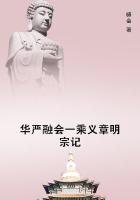The schoolmistress of Pine Clearing was taking a last look around her schoolroom before leaving it for the day. She might have done so with pride, for the schoolroom was considered a marvel of architectural elegance by the citizens, and even to the ordinary observer was a pretty, villa-like structure, with an open cupola and overhanging roof of diamond-shaped shingles and a deep Elizabethan porch. But it was the monument of a fierce struggle between a newer civilization and a barbarism of the old days, which had resulted in the clearing away of the pines--and a few other things as incongruous to the new life and far less innocent, though no less sincere. It had cost the community fifteen thousand dollars, and the lives of two of its citizens.
Happily there was no stain of this on the clean white walls, the beautifully-written gilt texts, or the shining blackboard that had offered no record which could not be daily wiped away. And, certainly, the last person in the world to suggest any reminiscences of its belligerent foundation was the person of the schoolmistress.
Mature, thin, precise,--not pretty enough to have excited Homeric feuds, nor yet so plain as to preclude certain soothing graces,--she was the widow of a poor Congregational minister, and had been expressly imported from San Francisco to squarely mark the issue between the regenerate and unregenerate life. Low-voiced, gentlewomanly, with the pallor of ill-health perhaps unduly accented by her mourning, which was still cut modishly enough to show off her spare but good figure, she was supposed to represent the model of pious, scholastic refinement. The Opposition--sullen in ditches and at the doors of saloons, or in the fields truculent as their own cattle--nevertheless had lowered their crests and buttoned their coats over their revolutionary red shirts when SHE went by.
As she was stepping from the threshold, she was suddenly confronted by a brisk business-looking man, who was about to enter. "Just in time to catch you, Mrs. Martin," he said hurriedly; then, quickly correcting his manifest familiarity, he added: "I mean, I took the liberty of running in here on my way to the stage office. That matter you spoke of is all arranged. I talked it over with the other trustees, wrote to Sam Barstow, and he's agreeable, and has sent somebody up, and," he rapidly consulted his watch, "he ought to be here now; and I'm on my way to meet him with the other trustees."
Mrs. Martin, who at once recognized her visitor as the Chairman of the School Board, received the abrupt information with the slight tremulousness, faint increase of color, and hurried breathing of a nervous woman.
"But," she said, "it was only a SUGGESTION of mine, Mr. Sperry; I really have no right to ask--I had no idea"--
"It's all right, ma'am,--never you mind. We put the case square to Barstow. We allowed that the school was getting too large for you to tackle,--I mean, you know, to superintend single-handed; and that these Pike County boys they're running in on us are a little too big and sassy for a lady like you to lasso and throw down--I mean, to sorter control--don't you see? But, bless you, Sam Barstow saw it all in a minit! He just jumped at it. I've got his letter here--hold on"--he hastily produced a letter from his pocket, glanced ever it, suddenly closed it again with embarrassed quickness, yet not so quickly but that the woman's quicker eyes were caught, and nervously fascinated by the expression "I'm d----d" in a large business hand--and said in awkward haste, "No matter about reading it now--keep you too long--but he's agreed all right, you know. Must go now--they'll be waiting. Only I thought I'd drop in a-passin', to keep you posted;" and, taking off his hat, he began to back from the porch.
"Is--is--this gentleman who is to assist me--a--a mature professional man--or a--graduate?" hesitated Mrs. Martin, with a faint smile.
"Don't really know--I reckon Sam--Mr. Barstow--fixed that all right. Must really go now;" and, still holding his hat in his hand as a polite compromise for his undignified haste, he fairly ran off.
Arrived at the stage office, he found the two other trustees awaiting him, and the still more tardy stage-coach. One, a large, smooth-faced, portly man, was the Presbyterian minister; the other, of thinner and more serious aspect, was a large mill-owner.















